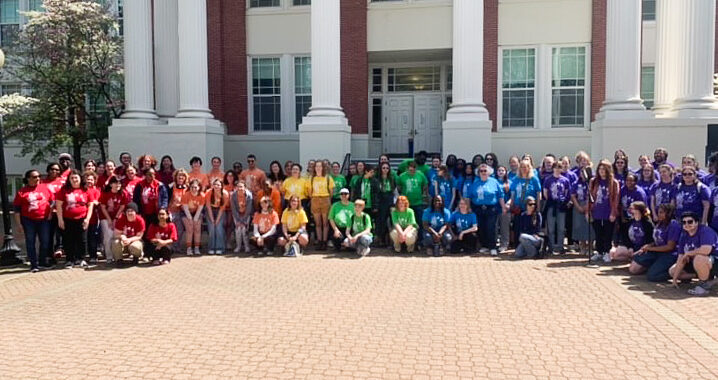‘Latinos in Dixie’ published
3 min readUMW Sociology professor and Department Chair Debra Schleef recently published a book entitled Latinos In Dixie about Latino communities in the South, principally in the Richmond area. The idea to write the book sparked when Schleef was working at the University of Richmond with the co-author of the book, H.B. Cavalcanti. Cavalcanti had come to Richmond from Brazil and at the time had been living there for 10 years.
Despite his lengthy stay in the United States, Cavalcanti struggled with his identity and assimilation into the American culture. He sought a Latino community in Richmond that he could identify with, and after talking about it over lunch with Schleef they decided to look up statistics online about the Latino population in Richmond. This prompted the pair to talk to Latinos in the Richmond area about their experiences.
DMV records and telephone records were used to look people up. Schleff and Cavalcanti also went to places like the Hispanic Chamber of Commerce, Mexican restaurants, and Latino grocery stores to talk to people. They formulated their own questions to ask, such as how long their subjects have been living in Richmond, the language they speak at home, and their level of difficulty of fitting in with the “Anglo American” community. These questions were formulated into an interview which is included in the back of Schleef’s book.
Schleef and Cavalcanti had about 30 student volunteers from the University of Richmond help with the interview process as well as sociology majors from UMW who entered data. A total of around 300 Richmond Latinos were interviewed for the book. Schleef also researched data about Lations in the South from newspapers, periodicals, and books, but had trouble finding good sources.
“We didn’t know what to expect,” said Schleef. “Not many people have studied Latinos in the South because there aren’t very many.”
The difficulty finding useful information was a challenge, but Schleef also faced difficulty coordinating the volunteer force and finding people to interview. Some Latinos that were listed as living in the Richmond area had moved, and some were not even Latino. Schleef even faced some people who didn’t want to be interviewed, although most were friendly.
“The data collection was fairly strenuous. Writing the book wasn’t too difficult. There are lots of statistics in the book,” said Schleef.
Schleef spent two years collecting data from 2001-2002. Her book was written within a year and a half and includes graphs and charts that were used during the research process.
Schleef was surprised by some of her findings when doing research. One thing that surprised her was that there is a sizeable middle class community of Latinos who were white collar workers or professionals in their fields. Schleef also did not expect to find that some of the Latinos had left their country of origin straight for Richmond, which is a lot less common than cities like New York, Miami, and San Diego.
Despite the long interview process and small volunteer force, Schleef got her work published this year. Although she is no novice when it comes to writing books, Schleef has no plans for upcoming works.
“I think I’m done,” said Schleef with a smile. “This was a pretty massive undertaking.”
Latinos In Dixie is available in the UMW Bookstore.











